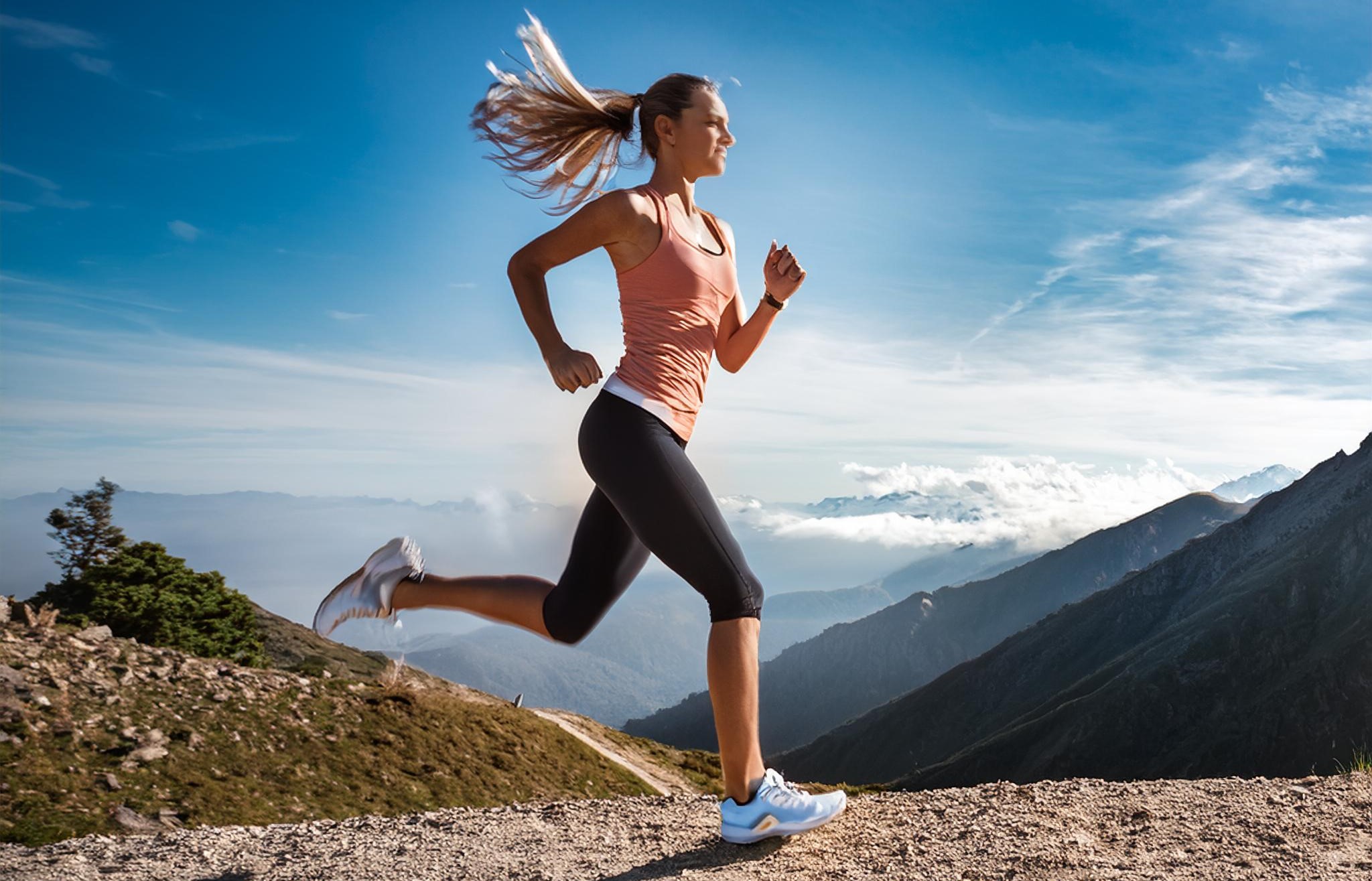Hypoxie et Performance 2024
Un projet émergeant de « questions de terrain » pour améliorer le soutien scientifique dans le champ du stress environnemental
Mots-clés :
stress environnemental, fatigue, entraînement en altitude, individualisation de l'entraînement, marqueurs physiologiques, réponses psychologiquesRésumé
Depuis les Jeux olympiques de Mexico 1968, l’évolution technologique et les avancées scientifiques ont contribué au développement de différentes méthodes d’entraînement en altitude/hypoxie bénéfiques pour les différentes disciplines olympiques. Toutefois, différents aspects tels que la planification des méthodes, le suivi de la dose hypoxique, de la charge d’entraînement, de la fatigue et la variabilité individuelle des réponses restent encore sous-investigués. Le projet HYPOXPERF, co-construit avec les fédérations accompagnées, participe à l’amélioration des connaissances scientifiques en apportant des résultats nouveaux relatifs à l’identification des réponses individuelles, à la validité de méthodes combinées ou encore aux adaptations croisées. Il a permis d’affiner les recommandations pratiques en faisant aussi émerger de nouvelles demandes de suivi, d’accompagnement scientifique et de recherche qui s’inscrivent dans la préparation de nouvelles échéances olympiques d’été ou d’hiver (Los Angeles 2028, Cortina 2026 et Alpes Françaises 2030) avec des opportunités de transfert à l’échelle du grand public en termes de santé et bien-être.
Références
Beard, A., Ashby, J., Chambers, R., Brocherie, F. et Millet, G. P. (2019). Repeated-sprint training in hypoxia in international rugby union players. Int J Sports Physiol Perform, 14(6), 850-854. https://doi.org/10.1123/ijspp.2018-0170
Bouten, J., Brick, M., Saboua, A., Hadjadj, J. L., Piscione, J., Margot, C. et al. (2023). Effects of 2 different protocols of repeated-sprint training in hypoxia in elite female rugby sevens players during an altitude training camp. Int J Sports Physiol Perform, 18(9), 953-959. https://doi.org/10.1123/ijspp.2023-0121
Brocherie, F., Girard, O. et Millet, G. P. (2017). Innover en préparation physique avec l’entraînement en altitude. Réflexions Sport, 15, 4-23.
Brocherie, F., Millet, G. P., Hauser, A., Steiner, T., Rysman, J., Wehrlin, J. P. et al. (2015). “Live High-Train Low and High” hypoxic training improves team-sport performance. Med Sci Sports Exerc, 47(10), 2140-2149. https://doi.org/10.1249/mss.0000000000000630
Burtscher, J., Raberin, A., Brocherie, F., Malatesta, D., Manferdelli, G., Citherlet, T. et al. (2023). Recommendations for women in mountain sports and hypoxia training/conditioning. Sports Med, 54, 795-811. https://doi.org/10.1007/s40279-023-01970-6.
Dufour, S. P., Lampert, E., Doutreleau, S., Lonsdorfer-Wolf, E., Billat, V. L., Piquard, F. et al. (2004). Eccentric cycle exercise: training application of specific circulatory adjustments. Med Sci Sports Exerc, 36(11), 1900-1906. https://doi.org/10.1249/01.mss.0000145441.80209.66
Gibson, O. R., Taylor, L., Watt, P. W. et Maxwell, N. S. (2017). Cross-adaptation: heat and cold adaptation to improve physiological and cellular responses to hypoxia. Sports Med, 47(9), 1751-1768. https://doi.org/10.1007/s40279-017-0717-z
Jeton, F., Soliz, J., Marchant, D., Joseph, V., Richalet, J. P., Pichon, A. et al. (2017). Increased ventilation in female erythropoietin-deficient mouse line is not progesterone and estrous stage-dependent. Respir Physiol Neurobiol, 245, 98-104. https://doi.org/10.1016/j.resp.2017.07.002
Millet, G. P. et Brocherie, F. (2020). Hypoxic training is beneficial in elite athletes. Med Sci Sports Exerc, 52(2), 515-518. https://doi.org/10.1249/MSS.0000000000002142
Mujika, I., Sharma, A. P. et Stellingwerff, T. (2019). Contemporary periodization of altitude training for elite endurance athletes: a narrative review. Sports Med, 49(11), 1651-1669.
Raberin, A., Burtscher, J., Citherlet, T., Manferdelli, G., Krumm, B., Bourdillon, N. et al. (2023). Women at altitude: sex-related physiological responses to exercise in hypoxia. Sports Med, 54, 271-287. https://doi.org/10.1007/s40279-023-01954-6
Rodriguez, F. A., Iglesias, X., Feriche, B., Calderon-Soto, C., Chaverri, D., Wachsmuth, N. B. et al. (2015). Altitude training in elite swimmers for sea level performance (Altitude Project). Med Sci Sports Exerc, 47(9), 1965-1978. https://doi.org/10.1249/MSS.0000000000000626
Schmitt, L., Millet, G., Robach, P., Nicolet, G., Brugniaux, J. V., Fouillot, J. P. et al. (2006). Influence of “living high-training low” on aerobic performance and economy of work in elite athletes. Eur J Appl Physiol, 97(5), 627-636. https://doi.org/10.1007/s00421-006-0228-3
Siebenmann, C. et Dempsey, J. A. (2020). Hypoxic training is not beneficial in elite athletes. Med Sci Sports Exerc. 52(2), 519-522. https://doi.org/10.1249/MSS.0000000000002141
Sotiridis, A., Debevec, T. et Mekjavic, I. B. (2018). Letter to the editor: combined effects of hypoxia and heat: importance of hypoxic dose. Am J Physiol Regul Integr Comp Physiol, 314(2), R228-R229. https://doi.org/10.1152/ajpregu.00347.2017
White, A. C., Salgado, R. M., Schneider, S., Loeppky, J. A., Astorino, T. A. et Mermier, C. M. (2014). Does heat acclimation improve exercise capacity at altitude? a cross-tolerance model. Int J Sports Med, 35(12), 975-981. https://doi.org/10.1055/s-0034-1368724
Woorons, X., Mucci, P., Richalet, J. P. et Pichon, A. (2016). Hypoventilation training at supramaximal intensity improves swimming performance. Med Sci Sports Exerc, 48(6), 1119-1128. https://doi.org/10.1249/MSS.0000000000000863
Woorons, X., Faucher, C., Dufour, S. P., Brocherie, F., Robach, P., Connes, P., Brugniaux, J. V., Verges, S., Gaston, A. F., Millet, G. P., Dupuy, O. et Pichon, A. (2024). Hypoventilation training including maximal end-expiratory breath holding improves the ability to repeat high-intensity efforts in elite judo athletes. Front. Physiol, 15, 1441696. https://doi.org/10.3389/fphys.2024.1441696

Publiée
Licence
(c) Copyright Franck Brocherie, Julien Brugniaux, Phillipe Connes, Stéphane Dufour, Anne-Fleur Gaston Gaston, Philippe Gimenez, Grégoire P. Millet, Elie Nader, Aurélien Pichon, Paul Robach, Xavier Woorons (Auteur) 2024

Ce travail est disponible sous licence Creative Commons Attribution - Pas d'Utilisation Commerciale - Pas de Modification 4.0 International.

